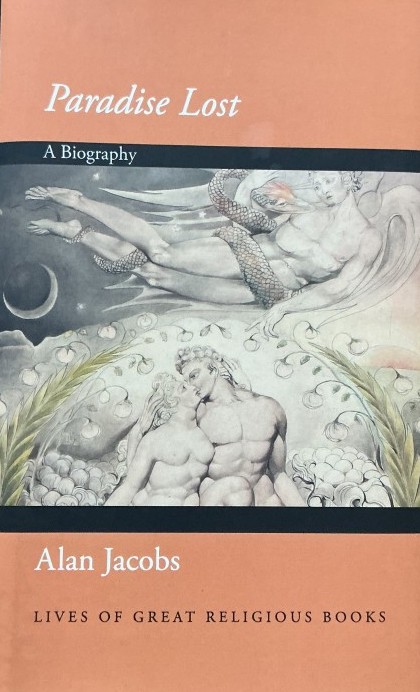Inspiring Older Readers
 posted on 10 Aug 2025
posted on 10 Aug 2025
Paradise Lost: A Biography by Alan Jacobs
Alan Jacobs, Distinguished Professor of Humanities at Baylor University in the USA has written a relaxed and engaging introduction to John Milton’s classic poem, Paradise Lost as a contribution to a series of books under the collective title of ‘Lives of Great Religious Books’. And its inclusion in this series is exactly the starting point for Jacobs’ analysis – should this poem, he asks, actually be thought of as a ‘religious book’ at all?
He addresses this question over the course of the 180 pages of analysis but I’m not sure you’ll actually find a definitive answer. But that certainly doesn’t matter because the author takes us on an historical critical journey through the changing understandings and perceptions of the poem over the ages – right up to a really perceptive and insightful analysis of in the role of Paradise Lost in the work of Philip Pullman and the His Dark Materials sequence.
What Jacobs shows us in stark relief is that Paradise Lost has divided opinion since its publication and that arguments about the text have revolved not just around its poetic merit but about its theological positions. It’s also clear that Milton as a poet cannot easily be assessed without understanding Milton the man of politics. There are, it seems, plenty of critics who have dismissed Milton because of his active and outspoken support and active participation in the Republican cause and the idea that, to put it crudely, he wasn’t a very nice man – that he was politically and socially austere and, even more importantly (certainly to Mary Wollstonecraft) gravely misogynistic.
As a result, despite the fact that his reputation has ebbed and flowed, it is often the power of the poetry and the extraordinary daring of his use of language that often convinces critics. I especially liked this quotation from the 20th century critic William Empson that Jacobs calls ‘compelling and provocative’ :
“The poem is not good in spite of but especially because of its moral confusions, which ought to be clear in your mind when you are feeling its power. I think it horrible and wonderful: I regard it like Aztec or Benin sculpture, or to come nearer home the novels of Kafka, and am rather suspicious of any critic who claims not to feel anything so obvious.”
The developing story of Milton and his most famous poem is set out here in a really accessible and satisfying way but I have to say that I think I especially enjoyed the way Jacob focuses on the reactions of other poets to the epic. I’ve already mentioned that his comments about the poem’s impact on Philip Pullman were particularly engaging but there are similarly excellent passages relating to Blake, the Shelleys and Eliot.
By the end of the book, I think that you, like me, will be forced to agree with this assessment by Jacobs:
“People have continued to care about poetry, and about religion, and Milton’s poem has been a lightening-rod drawing to itself the electrical energies of those passions.”
Available now from Princeton University Press, you will be able to get a copy from your local independent bookshop – who will be happy to order it for you if they don’t have it on their shelves.
Terry Potter
August 2025